Graham Reid | | 2 min read
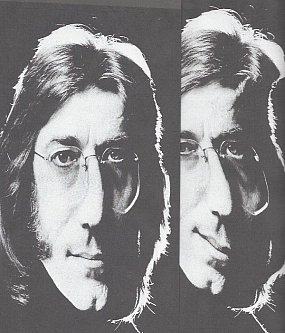
It's very odd, but I would have put money on the fact that I once interviewed the Doors' keyboard player Ray Manzarek. But I can find no evidence to support that and – although this can be true of many among the thousand or musicians I have interviewed – can drag up no details from the memory.
I certainly interviewed the band's very amusing drummer John Densmore but never exchanged so much as a pleasantry or nod with guitarist Robbie Krieger.
As to Jim Morrison?
Well I've been to his grave in Paris and one night on Sunset Strip I saw his doppelgänger fronting a superb Doors' covers band at the Whiskey.
Manzarek still troubles me though.
If we did speak it would certainly have been about the Doors because I never followed anything of his solo career (or those posthumous Doors albums) although I briefly owned his version of Carl Orff's famous Carmina Burana because I remember the collage cover.
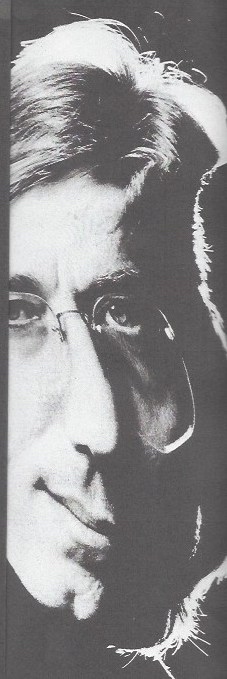 And yet here we are with a Manzarek album at hand, pulled from the shelves at random to consider for this on-going column.
And yet here we are with a Manzarek album at hand, pulled from the shelves at random to consider for this on-going column.
I obviously bought it secondhand at some point but can't recall a single note of it.
It looks like a concept album (the subtitle is “A Rhythm Myth”) and I suspect it was picked up more for who is on it than for the mainman: drummer Tony Williams, bassist Jerry Scheff and guitarist Larry Carlton. It was produced by Bruce Botnick who had done the job for the Doors.
There's also the Mailto Correa percussion ensemble (two of whom play cowbells).
Or maybe I bought it for the final track which is titled Oh Thou Precious Nectar Filled Form (or A Little Fart).
Needless to say it's pretty . . . unusual.
The opener He Can't Come Tomorrow sounds like a B-grade Zappa track: Frank-like declaimed vocals, odd effects, guitar and percussion breaks, and a kind of cynical lyric about people needing a leader/guru.
In fact much of this sounds very like a constrained Zappa album from the same period and it is Carlton and Williams who add lustre to Manzarek's ordinary songs which are mostly held back by his inability to deliver his lyrics in anything other than that monochromatic, MOR voice.
For Doors' fans the standout would be Chuck Berry's Downbound Train turned into a rapid Morrison-like song with one of Manzarek's urgent, signature jazzy keyboard solos. The kind of thing which would have slotted in somewhere on the Doors' LA Woman.
His solo on The Purpose of Existence (another Doors' groove) is similarly fine, as is Carlton's solo.
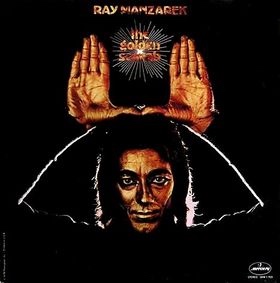 The instrumental The Moorish Idol is almost archetypal jazz-rock of the Seventies. Energetic but pointless.
The instrumental The Moorish Idol is almost archetypal jazz-rock of the Seventies. Energetic but pointless.
Then we are back to Zappa for Choose Up and Choose Off which would have sounded hilariously cynical coming from Frank but here is just wordy MOR.
And finally the fart song which you can discover for yourself.
If I did speak with Ray Manzarek (who died in 2013) and I'd heard this album, I know what I would've said: “Ray! What were you thinking?”
.
You can hear this album on Spotify here
.
Elsewhere occasionally revisits albums -- classics sometimes, but more often oddities or overlooked albums by major artists -- and you can find a number of them starting here

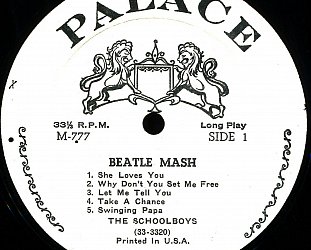
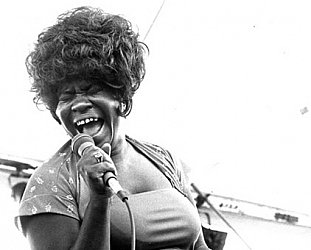
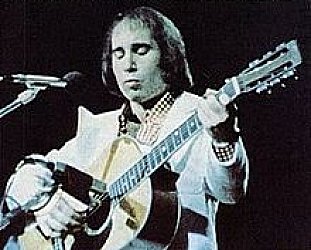
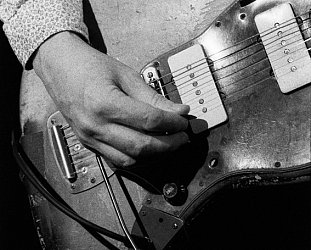
Aase - Apr 13, 2025
I am a longtime Doors fan and just listened to the Golden Scarab on Spotify. Wow! I didn't have high expectations for it but wow! I think that it is a terrible album. It is basically unlistenable.
Savepost a comment